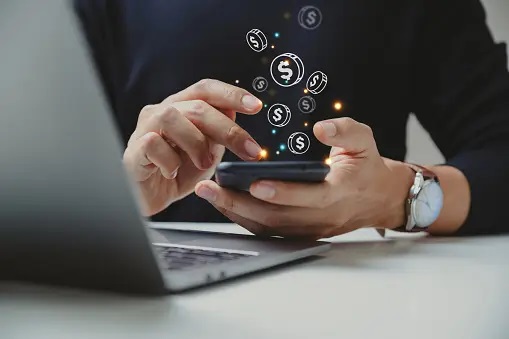By Doriel Abrahams, Head of Risk, U.S.
Fraudsters are always looking for a vulnerability they can exploit, and broad economic trends are no exception. Economic uncertainty has become a prevalent concern in society, impacting various sectors such as industry, vertical, geography, and more. Whilst some of these are negatively impacted, others may experience a more positive outcome. Nevertheless, the common theme of uncertainty runs throughout, specifically when it involves online fraud.
When Economic Uncertainty Rises, So Do Fraud Attacks
Fraudsters are always looking for any vulnerability they can exploit into becoming an opportunity for theft, and broad economic trends are no exception — over 80% of Certified Fraud Examiners say fraud levels rise in times of economic distress.
Many fraud departments are pressured to approve as many orders as possible, as efficiently as possible, when their companies focus on increasing or maintaining revenue. Often, a company will also explore creative ways to open new avenues of revenue, such as new markets or payment methods. All these carry fraud risk, but companies concentrating on the bottom line may be less sensitive than usual to the need to mitigate risks.
All this means that fraudsters have an advantage; when that’s the case, they’re rarely slow to push. Moreover, for reasons I’ve written about before, a significant rise in amateur fraud has led to more fraudsters getting in on the act.
The results are exactly what you might expect. In the upcoming Fraud Benchmarking Survey from Fraudology, an astonishing 75% of fraud fighters report that attempted fraud rates have increased within their organisation in the past 12 months. The increases aren’t tiny, either; 59% report that the increase is 10% or more.
What Does This Mean for Consumers?
Consumers are often considered protected from the impact of a rise in attack rates. If their payment details are stolen and misused for theft, they must file a fraud chargeback with their bank to be issued a full refund. But three key dangers come with increased fraud attacks that can’t be fixed with a chargeback refund.
- Account takeover: Fraudsters don’t only target the point of checkout; they increasingly attack accounts as well. Consumers may lose gift cards or loyalty points stored in their accounts, have their personal information exposed, or experience the account being misused for spamming or tricking others.
- Identity theft: Fraudsters sometimes steal real identities or create “synthetic identities,” which combine real identity data with fake data or information from other real identities. These can be used to set up fake accounts that exploit real identity information for malicious purposes, including payment apps and bank accounts.
- Being taken in by offers that are “too good to be true”: As people feel a financial crunch, they look more for deals that help their money stretch further. Some deals are legitimate, but fraudsters can offer the most significant discounts because they didn’t pay for the goods in the first place. They may not deliver the merchandise; if they do, it may not be as advertised, and they often steal the card information used for future theft.
The risk of triangulation schemes (when a fraudster sets up a fake site to take orders and fills them using stolen payment information) is especially significant in the travel industry because fake travel agents abound that sell deals that are too good to beat but less obviously risky. After all, prices for travel, especially packages, do vary considerably.
The customer is at serious risk of arriving at the airport, station, or destination to discover that they do not have a reservation because the payment was already reported as fraudulent by the cardholder and cancelled by the travel or hospitality company.
How Can Consumers Protect Themselves?
A lot of the things that consumers need to do are things that we’ve all been told for many years. Things like:
- Use strong passwords and multi-factor authentication when it’s available.
- Never share passwords or personal information.
- Check your bank statements regularly or set up alerts for when money is spent.
- In the US, get your free annual credit report and set up credit freezes.
- Proactively ensure that others in your family are educated and protected.
In times of economic uncertainty, though, consumers need to guard themselves against the voice that tells them to take a chance on a deal they feel they can’t miss out on. If it looks too good to be true — it very often is precisely that. 30%-60% of those who make purchases on sites or marketplaces that aren’t well-known end up disappointed — and out of pocket.
Fraudsters are frequently psychologically astute. They know how to leverage insecurities and human weaknesses. During economic uncertainty, consumers need to be extra careful to guard against falling into the resulting traps, however, tempting the offer might look.
The Role of Fraud Fighters
At times like this, it may be worthwhile for fraud fighters, especially in consumer-facing companies, to evaluate how fraud attacks of this type might impact their customers and what they could do to help.
While it’s not the company’s fault if a consumer is conned, customers often blame the company if a marketplace is involved or if a merchant’s site has been spoofed for the scam. It might not be fair, but it’s human nature.
Fraud fighters can proactively analyse possible vulnerabilities, monitor for fake sites or apps using their company or brand, educate other departments internally about the potential risks, and consider with consumer-facing colleagues the option of educational popup messages, website sections, emails and so on to ensure that customers both know the risks and know that the company is looking out for them.
It’s not exactly part of a fraud fighter’s job, in many cases, but proactively taking extra steps like these can be a powerful way to show that a fraud department is aware of additional risks, active in protecting the company, and focused on taking care of customers.


